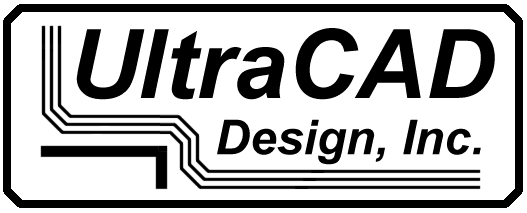
UltraCAD Design, Inc
22518 SE 45th Lane
Issaquah, WA 98029
e-mail: ![]()
Resources
& Tools
 |
UltraCAD Design, Inc |
||||||||
|
22518 SE 45th Lane |
e-mail: |
||||||||
| Home |
Books & Resources |
Calculators & Tools |
Simulations | ||||||
| xxxxxxxxxxxxxxxxxxxxxxxxxxxxxxxxxxxxxxxxxxxxxxxxxxxxxxxxxxxxxxxxxxxxxxxxxxxxxxxxxxxx | |||||||||
Calculator for Factorials, Permutations, and
Combinations
This calculator is shown below. It will calculate the parameters for
virtually any values. I have used it to calculate the factorial of
10,000,000,000! (But a factorial this large takes considerable time to
calculate!)
10,000,000,000! = 2.80976134595865 * 10^(995657055186)
Accuracy is to about 12 significant digits, but the order of magnitude (10^x)
should be exact.

Here is an explanation of the terms used:
Factorials: Factorials are pretty well understood. For example,
25! = 25*24*23*22*...*3*2*1 = 1.55112100433311 * 10^25
Permutations: Permutations can be considered sampling without
replacement but with regard for order.
For example, consider a deck of 52 cards. If we deal a hand of 5 cards, and we
consider order to be important (i.e. A,K,Q,J,10 hearts is different from
10,J,Q,K,A hearts), there are 311,875,200 different permutations of hands that
can be dealt. There are 52 ways the first card can be selected, 51 ways the
second card can be selected, etc, down to 52 -5+1 ways (48 ways) the last card
can be selected.
P(N,n) = N*(N-1)*(n-2)*...*(N-n+1)
(If order is not important, then this is a problem in combinations.)
Combinations: Combinations can be considered sampling without
replacement and without regard for order. This is the typical sampling type of
problem.
C(N,n) = N!/[n!(N-n)!]
For example, if we deal five-card hands from a deck of 52 cards, there are
2,598,960 combinations of hands that can be dealt. If we draw samples of size 2
from a population of size 20, there are 190 samples (combinations) that can be
drawn.
N^n: This can be considered sampling with replacement and with
regard for order.
For example, suppose I roll a six-sided die 4 times, there are 6*6*6*6 = 1,296
possible outcomes. But this would mean that a roll of 4,3,4,3 would be
considered different from a roll of 4,4,3,3.
The Dice Problem: Suppose I roll a six-sided die 4 times, but
without regard for order. That is, an outcome of 4,4,3,3, is the same result as
a 3,3,4,4. While there are 1,296 possible outcomes of rolling a die 4 times
(6^4), there are only 126 possible different outcomes (without regard for
order).
Note that this is the same problem as rolling 4 dice once. Each die can be
considered an independent roll.
| UltraCAD's universal license is required for this calculator. The calculator is included in the download "ucad-universal.zip." |
| Download "ucad-universal.zip" here. |
|
|
This calculator is designed to run on Windows 98/ME/NT/2K/XP/VISTA/Win7, 32 bit and 64 bit versions.

Click on logo to return to UltraCAD's Calculator page.